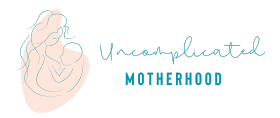Postnatal Diet Tips: Foods to Boost Recovery and Well-being
The journey of motherhood is a profound one, filled with moments of joy, challenges, and immense learning. As the body recovers from the miraculous process of childbirth, nutrition takes center stage. A well-structured postnatal diet is not just about regaining one’s pre-pregnancy shape; it’s about healing, nourishing, and rejuvenating the body and mind.
The postnatal period, often referred to as the ‘fourth trimester’, is a time of significant change and adaptation. Hormonal shifts, physical recovery, and the demands of caring for a newborn can be overwhelming. Amidst this whirlwind of emotions and responsibilities, a balanced diet becomes the cornerstone of a new mother’s well-being.
Every bite, every meal, plays a pivotal role in this recovery phase. From aiding wound healing to supporting lactation, the importance of a postnatal diet cannot be emphasized enough. This guide aims to shed light on the essentials of postnatal nutrition, offering insights and tips to ensure optimal health and vitality during this transformative phase.
Postpartum Diet Tips
The postpartum period is a critical phase where the body needs optimal nutrition to heal and recover. A balanced diet ensures that the mother gets the essential nutrients required.
The immediate postpartum period sees the body undergoing significant changes. Hormonal levels fluctuate, wounds need healing, and for many, the process of lactation begins. During this time, the body requires an increased intake of specific nutrients, including protein, iron, and calcium.
While it might be tempting to embark on a restrictive diet in a bid to lose the pregnancy weight, it’s essential to remember that the body’s nutritional needs are heightened during this period. Crash diets or heavily restrictive eating can deprive the body of essential nutrients, leading to fatigue, poor recovery, and other health issues.
Instead, the focus should be on whole foods. Incorporating a variety of fruits, vegetables, lean proteins, and whole grains can ensure a balanced intake of vitamins and minerals. Additionally, foods rich in fiber can aid digestion, which might be sluggish in the postpartum period.
Stay Hydrated All Day Long
Hydration is crucial, especially if breastfeeding. It aids in milk production and helps in flushing out toxins from the body.
Adequate hydration supports various bodily functions. For breastfeeding mothers, staying hydrated is even more critical as a significant amount of fluid is utilized in milk production. Dehydration can lead to a decrease in milk supply and can also make the mother feel even more fatigued.
While water is the best source of hydration, other fluids can also contribute to daily intake. Herbal teas, especially those that promote lactation like fenugreek or fennel, can be beneficial. However, it’s essential to limit caffeine intake as it can lead to dehydration and might affect the baby if breastfeeding.
Another aspect to consider is the quality of the water consumed. Ensuring that the water is clean and purified can prevent potential water-borne diseases. For added flavor and nutrients, consider infusing water with fruits, herbs, or even vegetables like cucumber.
Keep an Eye on Your Calories
Postnatal bodies have specific caloric needs. It’s essential to ensure you’re consuming enough, especially if breastfeeding, but not overeating.
The caloric needs post-pregnancy can vary based on several factors, including whether the mother is breastfeeding, her activity level, and her metabolic rate. While there’s an increased caloric requirement during breastfeeding, it’s essential to source these calories from nutritious foods.
Overeating or consuming empty calories can lead to excessive weight gain. On the other hand, not consuming enough can lead to fatigue and a decrease in milk supply for breastfeeding mothers. It’s a delicate balance that requires mindfulness and, in some cases, guidance from a nutritionist.
Listening to the body’s cues is crucial. Eating when hungry, opting for smaller, more frequent meals, and focusing on nutrient-dense foods can ensure that the body gets what it needs without excessive calorie intake.
Breastfeeding Diet & Dietary Guidelines
Breastfeeding mothers have unique nutritional requirements to ensure quality milk production.
Breastfeeding is a nutritionally demanding task. The body requires additional nutrients to produce milk that’s rich in proteins, fats, vitamins, and antibodies. This milk is the primary source of nutrition for the newborn, making the mother’s diet even more critical.
Foods rich in Omega-3 fatty acids, like flaxseeds and fatty fish, can enhance the quality of breast milk. Similarly, calcium-rich foods ensure that both the mother and baby have strong bones and teeth. It’s also essential to maintain a regular intake of fluids to support milk production.
While focusing on nutrient-rich foods, it’s also crucial to note foods and substances to avoid or limit. High caffeine intake, certain medications, and alcohol can pass into breast milk. If unsure, it’s always best to consult with a healthcare provider or lactation consultant.
Conclusion
The postnatal period is a beautiful yet challenging phase. As you navigate the intricacies of motherhood, remember that your well-being is paramount. By prioritizing your nutrition, you’re not only ensuring your health but also laying a strong foundation for your baby’s future. Embrace this journey with love, patience, and the knowledge that every meal is a step towards a healthier, happier you. Your strength, resilience, and dedication are the pillars that will support and nurture your child’s growth. Here’s to the incredible journey of motherhood, filled with love, growth, and endless possibilities.
